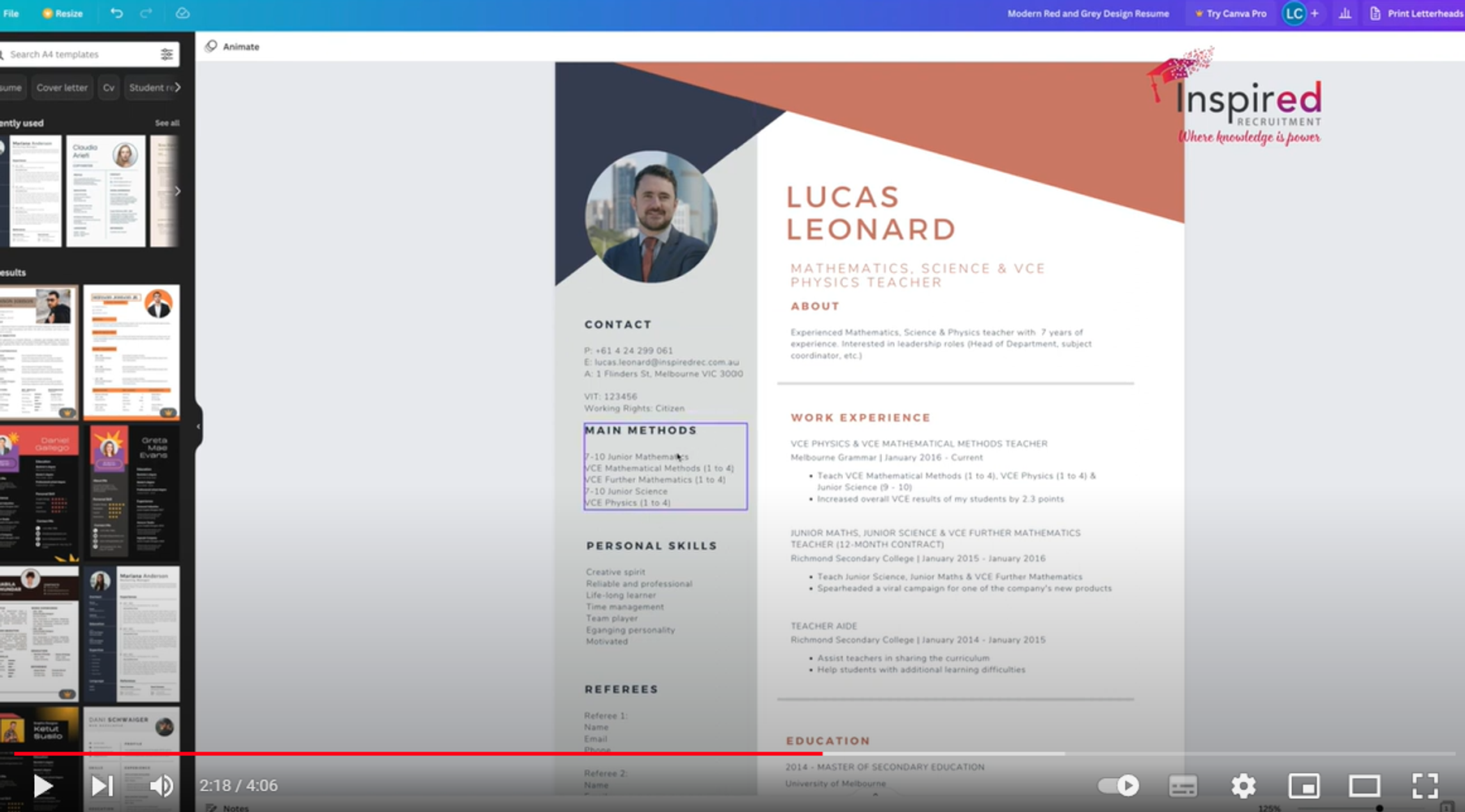Q&A For overseas teachers wishing to move & teach in Australia.
Dear teachers,
This article aims to answer the most frequently asked questions from overseas teachers. Our objective is to help you fulfil your dream of living & teaching in Australia.
What do I need to come & teach in Australia?
The first thing you will need to teach in Australia is valid working rights. In other words, you will need a visa to work in the country. Some schools (most of the time regional) might be interested in sponsoring, but it means you will have to work a few years in rural areas.
We also work with a few schools in the main cities, providing visas.
Otherwise, you might want to contact a migration agent near you. The following link regroups all the world's registered (official) migration agents. You might have one near you, in the country you currently live in. https://portal.mara.gov.au/search-the-register-of-migration-agents/
Please note they might be costly (around AU$400 / US$ 250 a consultation) but very useful. They might be able to provide you with other alternatives, such as skilled migration visas. The total cost for a skilled visa can reach about AU$ 10,000 , being around $US 6,250, so please note that it is an investment.
The second thing you will need is to be approved by the education department in the state you wish to live in. Each state has its department. I have attached a link to all of them to facilitate your research.
For Victoria & Melbourne, it is the Victorian Institute of Teaching: https://www.vit.vic.edu.au/registering-as-a-teacher
For New South Wales & Sydney, it is the New South Wales Education Standart Authority: https://educationstandards.nsw.edu.au/wps/portal/nesa/teacher-accreditation/how-accreditation-works/guide-to-accreditation
For Queensland & Brisbane, it is the Queensland College of Teachers: https://www.qct.edu.au/teaching-in-queensland
For Western Australia & Perth, it is the Teacher Registration Board of Western Australia: https://www.trb.wa.gov.au/Teacher-Registration/Becoming-registered
For South Australia & Adelaide, it is the Teacher Registration Board of South Australia: https://www.trb.sa.edu.au/applying-registration
For Tasmania & Hobart, it is the Teacher Registration Board of Tasmania: https://www.trb.tas.gov.au/Web%20Pages/Applying%20for%20Registration.aspx
For the Australian Capital Territory & Canberra, it is the ACT Teacher Quality Institute: https://www.tqi.act.edu.au/teach-in-the-act/Professional-Registration
To apply for your teaching registration, you must have completed a recognised degree in education (bachelor's, graduate diploma, master's).
If you have a teaching qualification from overseas, you must contact the Overseas Qualification Unit. They will assess and ensure your degree are comparable to an Australian equivalent. To do so, you can email oqu@liveinmelbourne.vic.gov.au or go to https://liveinmelbourne.vic.gov.au/work/overseas-qualification-unit
If you don't have a teaching qualification, it might be a great option to come and study for an education degree directly in Australia. If you need any information, please get in touch with STUDY DESTINATION (https://studydestination.com.au) . They provide 100% free services & advice for international students.
If you come from a non-speaking English country, you will need to complete an official English test to show your English proficiency. The most common test used in Australia is the IELTS: the Academic International English Language Testing System. The most often asked score is at least 8 in Speaking and Listening and at least 7 in Reading and Writing.
The English test will not be required if you have studied for your degree in an English-speaking country (for at least four years post-level A or international baccalaureate).
Finally, the last logical requirement is a clear police check. You will need to provide a police clearance from each country you have lived in for the last 10 years.
Is it easy to find a job in Australia?
Securing a role in Australia has never been that simple with our unique recruitment process. We only ask you to have the right mindset, motivation, passion & eagerness to impact students' lives to create a better tomorrow.
Please note that some schools are recruiting people with different profiles. For example, we are working with schools that prefer graduates and with schools that choose teachers with at least ten years of experience. As long as you are open-minded and happy to adapt to different school environments, it should be easy to find a job.
Don't hesitate to contact your lovely Inspired Recruitment agent for more information.
How much does a teacher earn in Australia?
The salary may vary from state to state and according to your experience. A graduate teacher should easily earn above AU$ 72,000 + superannuation per year. A teacher with at least 10 years of experience should earn above AU$ 100,000 + superannuation per year. Salaries increase yearly, so you won't have to negotiate your well-deserved pay raise.
In some states such as Victoria, New South Wales & Queensland, salaries should easily reach above $112,000 for a teacher with at least ten years of experience & $72,000 for a graduate. However, some private schools have their own salary schemes, meaning salaries might sometimes be slightly higher or lower. Some schools may also consider overseas experience while others may not.
How many hours does a teacher work weekly?
In Australia, most schools are open from 9 am to 3.15 pm. Therefore, most of the time, teachers would be asked to start their day around 8.45 am and finish slightly after 3.30 pm to prepare for the next day's lesson, attend meetings, and mark assignments. Days are about 6h and 15 minutes long, meaning 31h & 15 minutes weekly, but include breaks, and for primary, do not include assignment & exam corrections.
On the 31 hours & 15 minutes weekly basis, secondary teachers may have an allotment such as 60% for face-to-face teaching and 40% for lesson planning, assignment marking & meetings.
Can I teach in Australia if I have a PhD or a master's degree unrelated to education?
To teach at the primary or secondary level in Australia, it is compulsory to hold a teaching qualification. A PhD is recognised to teach in universities and at the tertiary level, but not at the primary or secondary level.
How do I apply for a teaching job in Australia?
Please send me your resume once you have fully compliant (refer to the first question): our email is enquiries@inspiredrec.com.au
We will take you through our process and work our best to find you the job of your dream!
Best regards,
Your dedicated Inspired Recruitment Team'












